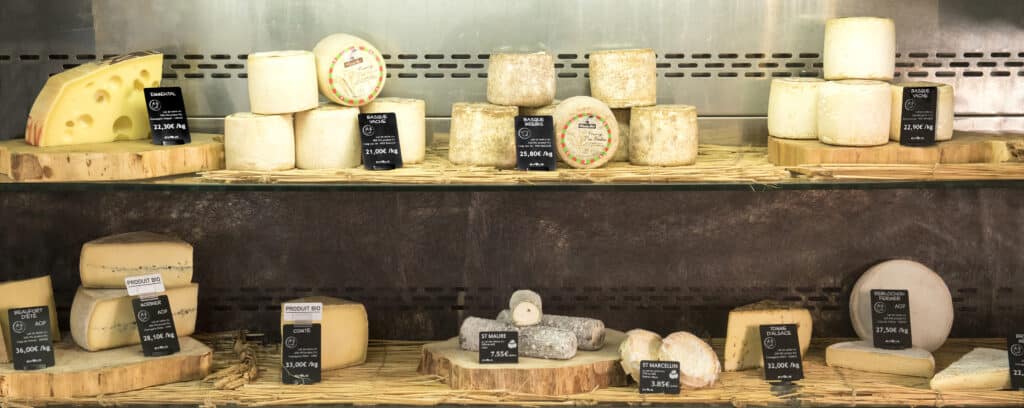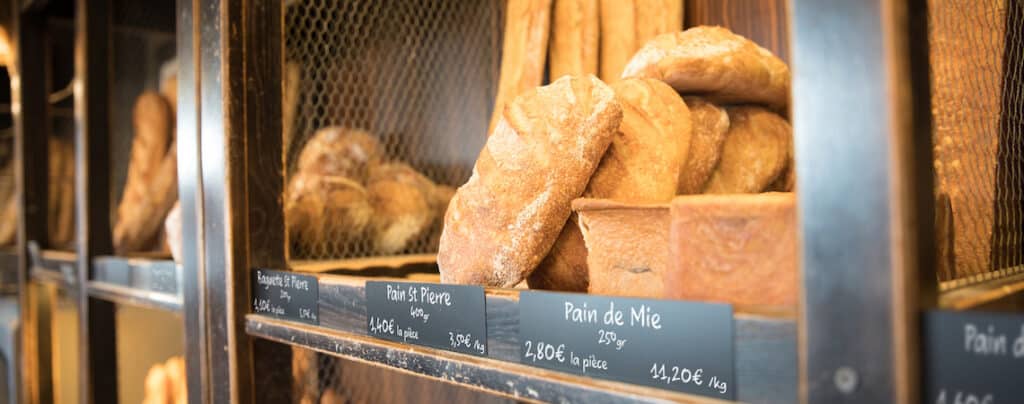How do you make a good first impression with new customers who discover your shop? The truth is that most people have already decided, within seconds of entering your shop, whether or not they are ready to spend their money. As well as good customer service and a clean, bright and welcoming interior, the design of your product price cards has a considerable impact on the impression customers have of your shop. Put simply, price cards are an extension of your products themselves. Poorly designed price cards and low-quality materials give your shop and stock a bad image, whereas effective cards focus on the main selling points and provide buyers with useful information.. Just think of the visual merchandising in your favourite shops. Chances are that they use effectively designed price cards that match the shop's brand image to make a good impression on shoppers. In this article, we explore the link between price card design and how customers perceive your shop, drawing important lessons from some of the best designs.
Influence consumer perceptions with price cards

Adapt your price cards to your shop's visual identity
Every visual element used in your shop contributes to the customer's overall impression of your shop, including interior design choices, window displays and signage.. All of these elements have the power to connect with shoppers and increase footfall and sales. Unfortunately, many shops don't understand that price cards are an important part of this strategy to maximise the visual appeal of the shop and its products.
By matching the design of your price cards to that of your shop, you can improve the customer experience by creating greater synergy between your different in-store marketing materials, indicating to customers that you have a strong brand consistency.
Good practices can be used to influence the type of environment you create for buyers. For example, you can use black and white price cards to match almost any theme or layout. However, you can also adapt your colour choices according to the type of atmosphere you want to create, such as seasonal themes.
Create a connection using custom fonts
Price cards are perceived by customers as a direct message from the shop. The message you send out will depend on your brand and your products, but it can be as follows by using personalised styles such as handwritten fonts, you can create a stronger personal bond with your customers.
By simply writing carefully chosen messages in customised fonts to accompany your product names and descriptions, you can dramatically improve customers' impression of your shop, which in turn improves sales.
Build greater trust with clear allergy information
Consumers with severe allergies don't just pick up the first products they see. Indeed, for people suffering from certain intolerances, buying food involves reading the entire description on the product packaging to check that it is safe to eat. Other people with strict dietary preferences, such as vegans, will also perform this task on a regular basis.
Shops that use price cards to clearly inform shoppers of allergy-related information can boost customer confidence.You can also inform customers that a product does not contain certain ingredients by means of price cards bearing statements such as "Gluten-free", "Nut-free" or "Vegan". You can also inform customers that a product does not contain such ingredients by means of price cards bearing statements such as "Gluten-free", "Nut-free" or "Vegan".
Testimonials
Designing durable and hygienic price cards for bakeries and food shops
Many food shops suffer from easily damaged displays made from poor quality paper or laminated cards. While this method is relatively cheap and simple to use, these cards have poor durability and need to be replaced regularly after being washed or exposed to moisture. Baker & Cook, an artisan bakery and food shop, had exactly this problem with their laminated point-of-sale displays, which deteriorated rapidly after being washed.
To solve this problem, Baker & Cook invested in a price card printer recommended specifically for the bakeries and pastry shops. This printer uses PVC materials and offers models with a matt finish and a choice of multiple colours, which are less likely to be damaged by water, enabling them to last much longer than previous card models.
By using this new method of producing price cards, the bakery was able to benefit from more durable and hygienic product display cards that could be easily cleaned and maintained. In addition, they are now able to create displays that are more attractive, clearer and more consistent with the main brand image, in order to improve the overall customer experience.
High-quality price cards for luxury hotel buffets
In some environments, standard price cards are simply not adapted to the strict requirements of brand image.. For example, the five-star Grand Hotel River Park, part of the Marriott Group's Luxury Collection, demands the highest quality customer experience at every level.
A new presentation card printer made it easy for them to personalise the design based on their brand, creating displays that perfectly complement the level of luxury and elegance their guests expect from their buffet service. It also allowed them to adapt displays in multiple languages and inform guests of important ingredients. For example, vegetarians were able to spot green cards, while certain allergy risks were highlighted for other customers.
As the Grand Hotel River Park has learned, price tags can be adapted to meet the high standards of the hotel sectorwhere quality and consistency are paramount.
How do you design an effective price card?

- Combine effective colour choices with clear designs that match your shop brand
- Use high-quality materials to improve durability and hygiene levels
- Speak directly to customers to build a stronger bond
In a nutshell, the design of your shop's price cards must fit in with your overall visual merchandising strategy to offer customers a positive experienceWhether they're regulars or newcomers. By putting these three basic strategies into practice, you'll be able to build better relationships with your customers, highlight the benefits of certain products and improve your shop's overall brand image. As we've learned from artisan bakeries and luxury hotels, people are sensitive to how products and items are accompanied by visual aids. Regardless of your product offering or thematic choices, consider how you can improve your customers' perception of your shop through effective price cards.
